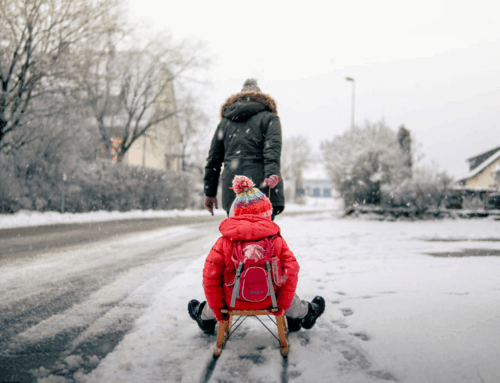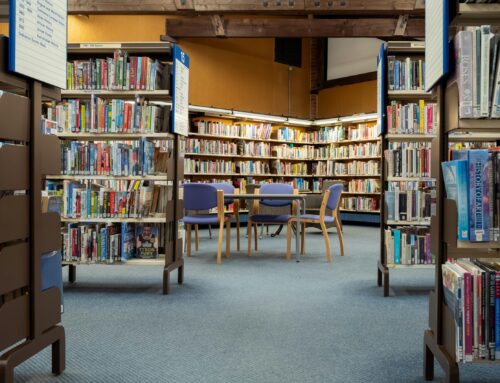 Book to film adaptations are rampant this year, from Netflix’s recent announcement of wanting to make yet another Pride & Prejudice movie—as if the 2005 production could ever be topped—to Emily Henry’s romance book People We Meet on Vacation, which just wrapped up filming this week! Many readers tend to scoff at news of adaptations, myself included, as they’ve been burned far too many times by awful representations of their most beloved books. But as this trend continues, we must ask: do adaptations help the book at all?
Book to film adaptations are rampant this year, from Netflix’s recent announcement of wanting to make yet another Pride & Prejudice movie—as if the 2005 production could ever be topped—to Emily Henry’s romance book People We Meet on Vacation, which just wrapped up filming this week! Many readers tend to scoff at news of adaptations, myself included, as they’ve been burned far too many times by awful representations of their most beloved books. But as this trend continues, we must ask: do adaptations help the book at all?
The answer is “yes, but.” If we take a short trip down memory lane towards our middle and high school years, I’m sure we can all remember watching adaptations of assigned books. Watching the film version of The Outsiders, To Kill a Mockingbird, and even The Giver were likely some of your first interactions with adaptations.[1] Debates always sparked over accuracy and different interpretations of events, but at the end of the day, these films made the act of reading for school—which can feel like a chore (it is homework, after all)—more enjoyable and helped students feel more invested in their reading.[2] If you enjoyed either the book or its film adaptation, you’re more likely to seek out something similar. For example, if a student enjoyed the film The Giver, which ends on a huge cliffhanger (much like the first book), they would have to seek closure in the paperback sequels as no more films were produced. Therefore, adaptations can be a springboard for reading!
Film adaptations of books must do a very important job, however: they must both introduce a new viewer and reintroduce the reader to the source material.[3] This is the aspect that often gets tricky for loyal readers of the book. In some cases, with prolific writers like Agatha Christie, screenwriters and directors are more inspired by the source to create their own stories rather than simply make a screenplay out of a book.[4] Of course, there are some straightforward adaptations of her books, like Death on the Nile, but these tend to be less well-received than say Knives Out—which featured a mystery fitting of her Hercule Poirot series.[5] Readers don’t just want accurate word by word translations of the books, it simply wouldn’t work. What they do want, however, is for the essence of the story and its characters to remain, for the lessons to be the same or even a little more evolved—but they do not want a flat page that talks. [6]
Successful adaptations tend to conserve the overall feeling of the text while breathing new life into it. One such example is Greta Gerwig’s take on Little Women. Louisa May Alcott’s story has been adapted many times for the big screen, and each film has its own following, yet Gerwig found something new to focus on for her adaptation that prompted thousands of think pieces online. Gerwig’s version features a dual timeline that is not present in the book nor in previous adaptations, and her focus on Amy and her growth is much more prominent.[7] It also analyzes Alcott’s prose in a way that fits with current dialogues around feminism, which is important given the history of the book itself.
Adaptations that fall short however, are not easily forgiven; not by the fans, nor by the author in some cases.[8] The Percy Jackson movie adaptations from the early 2010s proved to be a trainwreck after they made significant changes to the characters, like aging them up to appeal to a wider audience, and other changes that even Rick Riordan himself was deeply upset about.[9] A more recent disaster would be Netflix’s take on Jane Austen’s Persuasion, with Dakota Johnson as the lead. Loyal Austen readers and casual moviegoers alike found the adaptation to be shallow, with a 1-star Vox review saying that “it swings on its emotional pendulum from dour to dull.”[10]
These types of changes are precisely the kind that fans dread and scoff at whenever film rights for a book are acquired. And yet, the truth is that books and film adaptations, and films in general, depend on one another in order to remain relevant and make a profit.[11] Film adaptations of books and book series often prolong the life of the source material by giving the author and their catalog new attention, as well as by simply boosting book sales. One such case is the Bridgerton series, for which the week before its 3rd season aired, sales increased by 552 percent.[12] The same is true for the reverse, Forbes found that “film adaptations of books gross 44 percent more at the UK box office, and a full 53 percent more worldwide than films from original screenplays.” [13]
In short, while adaptations might sometimes miss the mark or offer a fresh and enjoyable take on a story, they will inevitably attract both criticism and attention. Regardless of the outcome, curiosity, hype, and popularity—whether positive or negative—it will always draw in readers.
[1] https://www.tameri.com/blog/2021/02/07/adaptations-promote-reading/#:~:text=Some%20readers%2C%20especially%20passionate%20fans,our%20copy%20of%20the%20book
[2] https://docs.lib.purdue.edu/cgi/viewcontent.cgi?article=2957&context=clcweb#:~:text=The%20interviews%20reflected%20an%20influence,the%20adapted%20version%20on%20screen
[3] https://mymidnightmusing.wordpress.com/2019/06/14/discussion-the-benefits-of-book-adaptations/
[4] https://www.theguardian.com/film/2022/nov/05/and-then-there-were-more-knives-out-agatha-christie-and-nonstop-mystery-boom
[5] https://www.tameri.com/blog/2021/02/07/adaptations-promote-reading/#:~:text=Some%20readers%2C%20especially%20passionate%20fans,our%20copy%20of%20the%20book
[6] https://www.theguardian.com/childrens-books-site/2011/mar/23/film-adaptations-ruin-books
[7] https://lucyvhayauthor.com/book-versus-film-little-women/
[8] https://www.theguardian.com/childrens-books-site/2011/mar/23/film-adaptations-ruin-books
[9] https://www.teenvogue.com/story/percy-jackson-author-rick-riordan-calls-movies-a-mess
[10] https://www.vox.com/culture/23220006/netflix-persuasion-review-dakota-johnson-jane-austen-henry-golding
[11] https://klio.psu.edu/2022/04/07/books-v-movie-adaptations-do-books-ever-win/
[12] https://www.latimes.com/entertainment-arts/tv/story/2024-07-08/netflix-book-adaptations-bridgerton-good-girls-guide-to-murder
[13] https://www.ooliganpress.com/do-movie-adaptations-impact-book-sales/
Photo free to use under Unsplash license.




